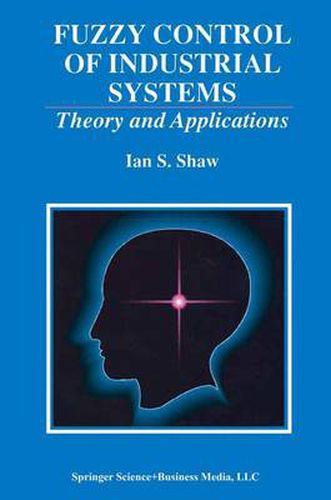Readings Newsletter
Become a Readings Member to make your shopping experience even easier.
Sign in or sign up for free!
You’re not far away from qualifying for FREE standard shipping within Australia
You’ve qualified for FREE standard shipping within Australia
The cart is loading…






This title is printed to order. This book may have been self-published. If so, we cannot guarantee the quality of the content. In the main most books will have gone through the editing process however some may not. We therefore suggest that you be aware of this before ordering this book. If in doubt check either the author or publisher’s details as we are unable to accept any returns unless they are faulty. Please contact us if you have any questions.
Fuzzy Control of Industrial Systems: Theory and Applications presents the basic theoretical framework of crisp and fuzzy set theory, relating these concepts to control engineering based on the analogy between the Laplace transfer function of linear systems and the fuzzy relation of a nonlinear fuzzy system. Included are generic aspects of fuzzy systems with an emphasis on the many degrees of freedom and its practical design implications, modeling and systems identification techniques based on fuzzy rules, parametrized rules and relational equations, and the principles of adaptive fuzzy and neurofuzzy systems. Practical design aspects of fuzzy controllers are covered by the detailed treatment of fuzzy and neurofuzzy software design tools with an emphasis on iterative fuzzy tuning, while novel stability limit testing methods and the definition and practical examples of the new concept of collaborative control systems are also given. In addition, case studies of successful applications in industrial automation, process control, electric power technology, electric traction, traffic engineering, wastewater treatment, manufacturing, mineral processing and automotive engineering are also presented, in order to assist industrial control systems engineers in recognizing situations when fuzzy and neurofuzzy would offer certain advantages over traditional methods, particularly in controlling highly nonlinear and time-variant plants and processes.
$9.00 standard shipping within Australia
FREE standard shipping within Australia for orders over $100.00
Express & International shipping calculated at checkout
This title is printed to order. This book may have been self-published. If so, we cannot guarantee the quality of the content. In the main most books will have gone through the editing process however some may not. We therefore suggest that you be aware of this before ordering this book. If in doubt check either the author or publisher’s details as we are unable to accept any returns unless they are faulty. Please contact us if you have any questions.
Fuzzy Control of Industrial Systems: Theory and Applications presents the basic theoretical framework of crisp and fuzzy set theory, relating these concepts to control engineering based on the analogy between the Laplace transfer function of linear systems and the fuzzy relation of a nonlinear fuzzy system. Included are generic aspects of fuzzy systems with an emphasis on the many degrees of freedom and its practical design implications, modeling and systems identification techniques based on fuzzy rules, parametrized rules and relational equations, and the principles of adaptive fuzzy and neurofuzzy systems. Practical design aspects of fuzzy controllers are covered by the detailed treatment of fuzzy and neurofuzzy software design tools with an emphasis on iterative fuzzy tuning, while novel stability limit testing methods and the definition and practical examples of the new concept of collaborative control systems are also given. In addition, case studies of successful applications in industrial automation, process control, electric power technology, electric traction, traffic engineering, wastewater treatment, manufacturing, mineral processing and automotive engineering are also presented, in order to assist industrial control systems engineers in recognizing situations when fuzzy and neurofuzzy would offer certain advantages over traditional methods, particularly in controlling highly nonlinear and time-variant plants and processes.